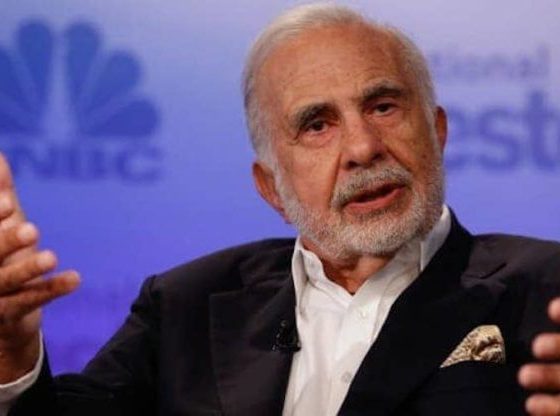The UK economy unexpectedly stagnated for the second consecutive month in July, signaling deeper challenges for the newly-elected Labour government, which has committed to revitalizing the country’s growth prospects.
Despite optimistic forecasts of 0.2% growth, the economy failed to expand, driven by declines in both construction and manufacturing, while the key services sector recorded only marginal growth.
This comes as a blow to Prime Minister Sir Keir Starmer’s government, particularly as it prepares for Labour’s first Budget, scheduled for the end of October.
Weak growth weighs on economic outlook
Figures released by the Office for National Statistics (ONS) on Wednesday show that the economy has struggled to gain momentum, with only a 0.1% expansion in the services sector.
Manufacturing output fell by 1%, and construction saw a 0.4% decline, compounding the overall stagnation.
The results are a disappointment for economists who had forecasted more robust growth following a relatively strong start to the year.
Sanjay Raja, an economist at Deutsche Bank Research, reflected on the disappointing results:
Despite the modest boost from the Euros, the UK saw broad-based weakness across the economy in July. The GDP print is not only weaker than expected but raises concerns about the sustainability of the UK’s economic recovery.
This lack of growth follows a stagnant June, emphasizing the difficulty facing Chancellor Rachel Reeves as she works on Labour’s first budget. Reeves, who will play a key role in navigating the country through its current economic headwinds, acknowledged the challenges.
“I am under no illusion about the scale of the challenge we face,” she said in a statement, adding, “I will be honest with the British people that change will not happen overnight.”
Sterling held steady against the dollar after the release, standing at $1.3098.
However, financial markets have grown cautious, with analysts anticipating the Bank of England (BoE) may respond by adjusting monetary policy to accommodate the slowing economy.
Interest rate decisions on the horizon
The weak economic performance comes just ahead of the BoE’s upcoming monetary policy meeting. The central bank is widely expected to hold interest rates steady at 5%, following a 25 basis point cut in August.
Inflation in the UK has also been tamer than expected, with the consumer price index (CPI) rising by 2.2% in July, just slightly above the BoE’s 2% target.
Economists suggest that this could make another rate cut more likely, as the BoE seeks to strike a balance between controlling inflation and stimulating growth.
Ruth Gregory, an economist at Consultancy Capital Economics, remarked on the significance of the July GDP data for upcoming monetary policy decisions:
Today’s data has made an interest rate cut next Thursday a bit more likely, though I still expect the BoE will keep rates unchanged.
Despite weaker inflation, the risks of a more pronounced slowdown loom over the second half of 2024.
The BoE had forecast 0.4% growth for the third quarter, followed by 0.2% in the final quarter. However, the latest data suggests a more severe contraction could be on the horizon.
Sanjay Raja also revised his forecast for Q3 growth downward, warning that “from seeing upside risks to Q3-24 GDP growth, relative to our baseline of 0.4 per cent quarter-on-quarter, we now see downside risks building.”
Labour faces tough choices ahead of the Budget
The stagnation in the economy presents a difficult challenge for the Labour government, which has placed growth at the forefront of its policy agenda.
Both Prime Minister Starmer and Chancellor Reeves have promised to deliver a Budget that focuses on stimulating growth, but they have also warned the public that difficult decisions will need to be made.
The Budget, set for October 30, is expected to include tough fiscal measures, with a focus on ensuring that the UK can weather the economic uncertainty ahead.
“The economy was disappointingly flat in July,” said Anna Leach, chief economist at the Institute of Directors.
It is important that the forthcoming Budget delivers a strong and positive message on growth. To reinforce business confidence to grow and invest, businesses need a predictable and efficient tax system, and growth-supporting policies.
The Labour government’s goal is to reverse years of economic stagnation that many attribute to the policies of the previous Conservative government.
Although the UK economy saw two consecutive quarters of positive growth earlier this year, growing by 0.7% in the first quarter and 0.6% in the second quarter, the long-term outlook remains fragile.
Reeves acknowledged the broader challenge, stating,
Two quarters of positive economic growth does not make up for 14 years of stagnation.
Economists broadly agree that while the initial recovery earlier in the year was promising, sustained growth may be elusive.
Global context and broader challenges
The UK’s stagnating growth comes in contrast to its performance in the first half of the year, when its economic recovery outpaced that of other G7 nations.
However, the continued underperformance of key sectors such as manufacturing and construction highlights the vulnerability of the UK economy, which remains heavily reliant on the services sector.
The Office for National Statistics reported that the small gains in services growth in July were driven primarily by computer programmers and the health sector, which rebounded after a period of strike action in June.
Yet these improvements were partially offset by declines in advertising, architecture, and engineering services.
Manufacturing’s 1% drop was particularly notable in the car and machinery industries, where production slumped, while construction’s 0.4% contraction added to concerns about broader economic fragility.
What’s in store for UK economy now?
With key sectors faltering and a challenging fiscal environment ahead, the outlook for the UK economy remains uncertain.
The stagnation of growth in both June and July underscores the difficulty of navigating the post-pandemic economic recovery.
As the BoE prepares for its next monetary policy decision and Labour gears up for its first Budget, both policymakers and businesses face hard choices in the months ahead.
As Raja from Deutsche Bank noted,
The downside risks to the UK economy are building, and a sharper slowdown than initially expected could materialize as we head into the final quarter of the year.
For the Labour government, the focus will be on crafting a Budget that not only addresses immediate economic concerns but also sets a clear path for long-term growth.
However, with inflation pressures, slowing growth, and global economic uncertainty, the road ahead may prove to be difficult.
The post UK economy stagnates for second consecutive month as growth falters appeared first on Invezz


